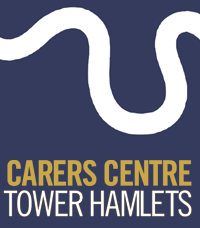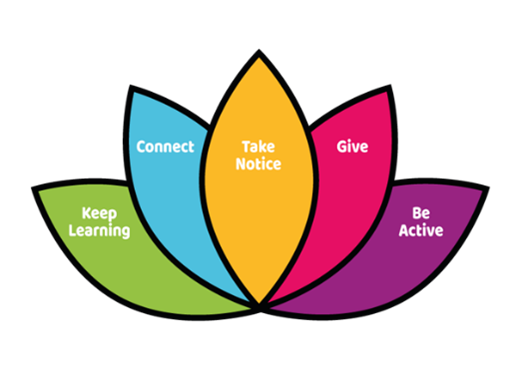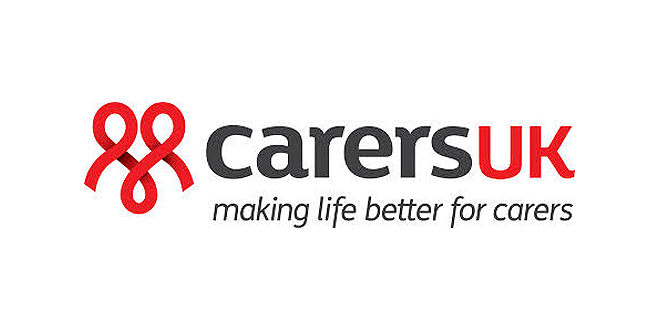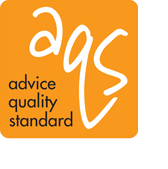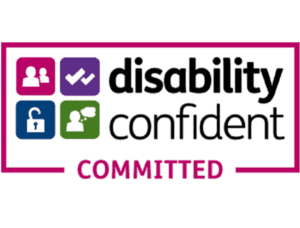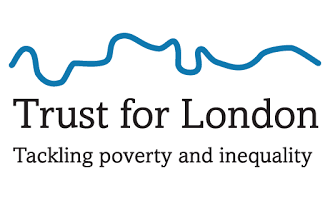Hello Everyone – This week I have become a carer for another person/s – be it short term…
So, my Sister has tested positive for Covid again, she sounds like Barry White and I keep making her laugh and cough as I cheer her up. This means tomorrow I am running around helping her with her shopping, birthday card, balloon and cake shopping, Incontinence pad pick up for my Mum, then visit Mum and then food shopping for my household – so wish me luck because it is going to be busy. I hear you say why birthday shopping, it is my Nephews fifteenth birthday tomorrow, my sister can’t get out to do these things and I am being the lovely Guncle and as part of my caring duties to undertake these emergency preparations (BTW, he tested positive for Covid this morning), so the plan is a nice chocolate cake for two, cards and films while they recover.
However, as I always advocate to you all I am taking some time out for myself. I am off the barbers to have a hair cut, fancy beard trim, hot towels and other stuff that I am not quite sure about. So, as I continue my quest to look more and more like Captain Birds Eye wish me luck and I hope I do not come out looking like Captain Pugwash.
I hope you all have a wonderful weekend and don’t forget the clocks go forward one hour.

Don’t forget that the activities we run are aimed at giving carers a chance for emotional respite, enabling connection with others so you do not feel alone and giving carers the chance to have fun, relax and be in the moment.
Don’t forget and Important News ..
I have some important news to tell you – As from April 2023 The Wellbeing Academy is pausing the massage therapies, housing advice surgeries due to reduced funding in the new financial year, I am sorry about this but myself and Graham are looking at possible funding opportunities to re-start in the future.
However, there will be new activities, groups and workshops coming up such as the Champion Training which will lead to new projects, cookery, first aid, swimming, a new and improved art facilities and we are starting a new peer support group for Bengali Carers of someone with Dementia, watch this space for more news, check out the monthly newsletters and as we will continue to provide a wellbeing framework that is coproduced and delivered with love ….
CCTH/ELFT MH Hub – Hybrid Tuesday 28th March @ I.30pm to 3pm and we have Laura Pisaneschi who is the operational lead for mental health liaison and crisis response team for Tower Hamlets who is coming to talk about her role, the teams and what carers can expect.
Dementia Carers Peer Support Group Wednesday 29th March @ 10.30am to 11.30am – Discussion and looking at toolkit on Nutrition for people with Dementia
Open University Study Group (great to see new carers joining) – do you want to learn something new, start a new hobby or just be in a learning group. You can take your time, fit it around your caring role and have fun.
Yoga for Carers – Wednesdays @ 2.30pm to 4pm and just drop in at the London Buddhist Centre
Ramadan in UK 2023: When and How to Celebrate
The holy month of Ramadan is considered the holiest and most sacred month of the Islamic Hijri (lunar) calendar. Muslims firmly believe that it was during this exalted month that the archangel Gabriel descended from the heavens and revealed the Message to the Prophet Muhammad.
During the month of Ramadan, Muslims are required to elevate their level of spiritual and physical submission to God by way of fasting; that is to say, Muslims must abstain from eating, drinking, smoking and also husband-wife intimacy from the breaking of dawn until the setting of the sun.
As we prepare to welcome the holiest of months, here are the dates, calendar and guide to spending Ramadan 2023 in the United Kingdom.
Click for Ramadan Timetable
Ramadan Timetable 2023 – When is Ramadan 2023_ _ Islamic Relief UK
Ramadan in the UK
With nearly 2.8 million Muslims living in the United Kingdom, which equals about 4.8% of the population, Islam constitutes the second largest religion in the country, after Christianity. The largest Muslim community can be found in London. The municipalities of Bradford, Luton, Blackburn, Birmingham, and Dewsbury also have significant Muslim populations.
During Ramadan, Muslims in the UK and around the world celebrate the revelation of the Quran (Koran). Islamic businesses and organizations may amend opening hours to suit prayer times during Ramadan. There may also be some congestion around mosques, such as the London Central Mosque in Regent’s Park, especially in the evenings.
The Ramadan hours varies from year to year depend on which season Ramadan is. This year, Ramadan will fall in spring, and it will take around 15-16 hours of fasting per-day.
Political leaders in the United Kingdom, including the prime minister, usually make public announcements on the first day of Ramadan to greet Muslims both locally and globally and to raise the general public’s awareness of the holiday’s importance among Muslims.
Rules and decorum – Ramadan 2023
The Ramadan fast (sawm) is one of the Five Pillars, fundamental religious duties of Islam, so most Muslims in the UK abstain from eating and drinking during daylight hours. The fast begins at dawn, right after the Suhoor meal, and lasts till the end of the day. It is broken with the Iftar meal, which consists of traditional dishes, juices, and desserts. During fasting hours, people avoid drinking, smoking, eating, and engaging in sexual activities.
Although, there are some people that exempt from fasting. This includes pregnant woman, breastfeeding mothers, the elders, sick people, and women who’s menstruating.
As a sign of respect to the Islamic beliefs and culture, it is better not to eat, drink, or dress inappropriately in public places in Muslim-dominated locales.
Ramadan praying hours in the UK
Muslims living in London, Birmingham, Glasgow, Liverpool and other cities start observing Ramadan as per the Sehri time or Iftar time in the UK. This is one of the main reasons why the starting date of Ramadan in the UK has great significance for them.

Don’t forget that if anything happens, use the numbers below and if it is an emergency dial 999.
Important Numbers:
Domestic Violence Duty Line: 020 7364 4986 between 9am – 5pm.Victim Support: 020 7364 2448/7957
Tower Hamlets Connect/Adult Social Care : 0300 303 6070

Will you still get energy bills support after March 2023?
Check out informational article in Metro Newspaper and click link to read more
Read in Metro: https://apple.news/AdvZhJcBvQk2YGgMmF0pS_Q

Help for Households Gives clear information about the exceptional payments, energy support and existing support schemes available, so the public know what is available and where they can find help. The homepage brings together over 40 support schemes that the public may be able to access depending on eligibility. Additionally, a range of online tools will help citizens quickly and efficiently check the support they might be eligible for and how to access it.
Next Week’s Activities – check out the https://ccth.org.uk/new/calendar/

Carers can now sign up for Carers Active April 2023
Participating carers will be supported and encouraged to take part in any physical activity that works for them, whether that’s walking, jogging, yoga or simple exercises around the home and garden. By signing up to Carers Active April, they’ll receive:
- A Carers Active April kickstarter pack (quantities are limited, so encourage carers to sign up soon so they don’t miss out!)
- The opportunity to take part in our Move Into Spring movement challenge, running throughout April.
- An invitation to our free virtual Healthathon event on 29 April.
- Weekly online physical activity sessions throughout April.
- Helpful ideas, tips and links during the month.

Blood Pressure Testing
A blood pressure test checks if your blood pressure is healthy, or if it’s high or low.
Blood pressure is the term used to describe the strength with which your blood pushes on the sides of your arteries as it’s pumped around your body.
Low blood pressure (hypotension) is not usually a problem, although it can cause dizziness and fainting in some people.
High blood pressure (hypertension) can increase your risk of developing serious problems, such as heart attacks and strokes, if it’s not treated.
Having this quick test is the only way to find out what your blood pressure is – and it could save your life.
When and where to get your blood pressure tested
You should have a blood pressure test if you’re worried about your blood pressure at any time.
If you’re over 40, you can have this test done as part of an NHS Health Check which is offered to adults in England aged 40 to 74 every 5 years.
If you have been diagnosed with high or low blood pressure, or you have a high risk of developing either, you may need more frequent checks of your blood pressure.
You can get your blood pressure tested at a number of places, including:
- your local GP surgery
- some pharmacies
- some workplaces
How blood pressure is tested
Blood pressure machines vary, but they’re all a type of measuring device, which often have an arm cuff attached to it.
The cuff is usually wrapped around your upper arm and filled with air until it feels tight. This can feel uncomfortable but it only lasts a few seconds.
It’s important to relax and not talk during this time, because this is when your blood pressure is measured.
If a healthcare professional is doing this for you, they may also use a stethoscope to record your blood pressure.
An automatic device usually picks up the measurements from sensors in the arm cuff, which are sent to a digital display.
You should get the results straight away.
Understanding your blood pressure reading
Your reading is made up of two numbers.
Blood pressure is measured in millimetres of mercury (mmHg) and is given as 2 numbers:
- systolic pressure – Highest number 1st the pressure when your heart pushes blood out
- diastolic pressure – Lowest number 2nd the pressure when your heart rests between beats
The highest number is always the systolic pressure and it’s always given first. For example, a blood pressure given as “120 over 80” or 120/80mmHg means a systolic pressure of 120mmHg and a diastolic pressure of 80mmHg.
Testing your blood pressure at home
Your GP may suggest 24-hour or ambulatory blood pressure monitoring (ABPM) if they think you may have high blood pressure (hypertension).
ABPM tests your blood pressure regularly over 24 hours, by using a cuff attached to a portable device that’s worn on your waist.
You can continue with your daily activities during this time.
If you want to regularly check your blood pressure at home, you can buy a machine.
Blood pressure devices for home use
If you want to check your blood pressure regularly at home, you can buy a digital blood pressure machine.
Choose a machine that measures your blood pressure at your upper arm, not your wrist or finger.
As a general guide:
- normal blood pressure is considered to be between 90/60mmHg and 120/80mmHg
- high blood pressure is considered to be 140/90mmHg or higher
- low blood pressure is considered to be 90/60mmHg or lower
If your reading is between 120/80mmHg and 140/90mmHg, you may be at risk of developing high blood pressure.
Things that can increase your risk of getting high blood pressure
It’s not always clear what causes high blood pressure, but there are things that can increase your risk.
You might be more at risk if you:
- are overweight
- eat too much salt and do not eat enough fruit and vegetables
- do not do enough exercise
- drink too much alcohol or coffee (or other caffeine-based drinks)
- smoke
- do not get much sleep or have disturbed sleep
- are over 65
- have a relative with high blood pressure
- are of black African or black Caribbean descent
- live in a deprived area
Making healthy lifestyle changes can sometimes help reduce your chances of getting high blood pressure and help lower your blood pressure if it’s already high.
There are things you can do to help prevent high blood pressure.
Lifestyle changes to reduce blood pressure
These lifestyle changes can help prevent and lower high blood pressure:
- reduce the amount of salt you eat and have a generally healthy diet
- cut back on alcohol
- lose weight if you’re overweight
- exercise regularly
- cut down on caffeine
- stop smoking
Some people with high blood pressure may also need to take 1 or more medicines to stop their blood pressure getting too high.

Private renters in Tower Hamlets: Have your say
Have your say about our proposals to require all privately rented properties with multiple occupiers in the borough to be licensed. Our private renting survey closes on Friday 31 March.
Have your say >

Repair and Reuse Day
Saturday 25th March 2023 (10:30-14:00)
Limehouse Youth Centre, Limehouse Causeway, E14 8BN
- Bus 135, 15, 277, D7
- Westferry DLR, Westferry Road, Canary Wharf is two minutes walk
Repair Week is an annual celebration of repair throughout London. In Repair Week come along to our fun, free Repair and Reuse Day. Reduce waste by learning repair skills, fall back in love with your stuff or find some new-to-you items. FREE to attend.
To help you extend the life of your stuff we will have:
- Drop-in bike maintenance and repairs – bring along your bike, mechanics from Bikeworks will be on hand to help
- Drop-in clothes mending workshop – bring along items that need repair and learn to fix them
- A clothing upcycling demonstration/workshop (Time TBA)
There will also be:
- Selling children’s clothing online workshop (Time TBA)
- Swap shop
Swap Shop
What to bring
Clothing, shoes and accessories – women’s, men’s and children’s, Unwanted Christmas gifts, Small items of furniture, Bric-a-brac, Toys, Sports equipment, Books, Tools, Musical instruments. Only bring items you would be happy to take away!
Do not bring
Electrical items, Underwear, Items that are faulty or dirty, Large items (A display board will be available for photos of larger items).
How it works
Bring up to 10 items in good, clean condition between 10.30 – 11.30am and exchange for tokens. Between 12noon-1.30pm browse and choose items and exchange your tokens for up to 15 new-to-you things!
Epilepsy Awareness / Purple Day – March 26, 2023
https://www.purpleday.org/

ReThink has been consulting with Carers from the centre and the team to look at Mental Illness and sport/physical activity as a means to help with wellbeing and they would like you to take part in their survey.
This is the link to the survey questionnaire for Tower Hamlets https://forms.office.com/e/BCR4WBW5Td
Food Banks Information
What you need to know
With the cost of living crisis affecting communities nationwide, the London Borough of Tower Hamlets have shared information on accessing your local FOOD Stores and tips on managing your food bills.
Tower Hamlets FOOD Stores
A number of FOOD stores have been set up across the borough, supporting those who are finding it difficult to afford enough food for themselves or their families.
At these FOOD stores, you are able to pick up food valued at £25-£35 in exchange for a £3.50 membership fee. At the same time, support is provided in other areas that you might need help with. This includes help with issues around
- housing
- benefits access
- employment and more.
To find out more or to become a member email thefoodstore@towerhamlets.gov.uk with your name, address, postcode, date of birth and contact number.
Foodbanks
There are a number of food aid organisations available to help you in Tower Hamlets if you are struggling to get food for yourself or your family. Scroll down to see where your closest branch is located. Different food aid services will offer different support.
Types
- Open Access – A food bank that anyone can go to for food.
- Limited Access/referral only – A Food bank that needs someone to refer you into the service. Please contact the organisation for more details.
- School food provision – A food bank or food aid service that specifically works with students and parents who attend the school.
- Hot meals service/Hostel – Provides hot meals or pre-made goods to residents.
Underwood Road Foodbank – (Open Access)
Opening times: Thursday and Friday, 9am – 3pm
St Anne’s Catholic Church, E1 5AW
Contact: 020 7247 7833 or email underwoodroad@rcdow.org.uk from Tuesday to Friday (9am – 3pm)
Ensign Youth Club – (Open Access)
Opening times: Friday 10am – 1pm
Wellclose Sq, E1 8HY
Contact: info@ensign.org.uk
Hague Primary School
Opening times: Monday – Friday 8.40am – 3.40pm
Hague primary school, E2 0BP and E1 5RE
For more information please ask at the school office.
Stewart Headlam Primary School
Opening times: Monday – Friday 8.40am – 3.40pm
Tapp St, London, E1 5RE
For more information please ask at the school office.
Wellington Primary School – Food bank (limited access/by referral only)
School food provision (Pupils and families only)
Opening times: Tuesday 2 – 3pm
Wellington Way, Bow, E3 4NE
Contact: admin@wellington.towerhamlets.sch.uk
St Elizabeth Pop Up Kitchen – School food provision (pupils and families only)
Opening times: 3.40 – 5pm
St Elizabeth Primary School, entrance on Waterloo Gardens, E2 9JY
For more information please visit St Elizabeth School website / Caritas Twitter page.
Bygrove School – School food provision (pupils and families only)
Opening times: Monday – Friday (Term Time Only)
Bygrove street, E14 6DN
For more information please visit the Bygrove School website.
Langdon Park School – School food provision (pupils and families only)
Opening times: Monday – Friday 8am – 4pm
Bright Street, London, E14 0RZ
For more information please ask at the school office.
Dorset Community Food Hub – (Open Access – Hot meals service)
Opening times: Thursday
Ground floor, former Dorset library, E2 8QX
For more information please visit the Dorset Community website.
Olga Primary School Foodbank – School food provision (pupils and families only)
Opening times: Friday 3.20 – 3.45pm
Olga Primary School, E3 5DN
Contact: 020 8981 7127
Edward Gibbons House – (Hostel)
Opening times: 24 hours
1 Parmiter St, E2 9NG
For more information please visit Providence Row website.
Globe Primary School – (Open Access)
Opening times: Friday 12 – 3.15pm
Globe Primary School, E2 0JH
For more information please visit Globe Primary School website.
Food for Aldgate – (Limited access/by referral only)
Opening times: Friday 1 – 3pm
Tonybee Hall, 28 Commercial Street, London, E1 6AB
Contact: Paul.wilson@eastendhomes.net or Twitter @FoodForAldgate.
Womens Inclusive Team – (Limited access/by referral only)
Opening times: Appointment provided after referral
Mayfield House 202 Cambridge Heath Road, E2 9LJ
Contact: 07415 372 664 or email shakilaa@wit.org.uk.
William Davis Food Bank – School food provision (pupils and families only)
Opening times: Friday 2 – 3pm
William Davis School, E2 6ET
Contact: 020 7739 1511
Bow Food Bank – (Open Access)
Opening times: Monday 8am – 12.30pm
Bromley by Bow Centre, St Leonard’s Street, E3 3BT
For more information please visit the Bow Food Bank website.
Bethnal Green Foodbank – (Open Access)
Opening times: Wednesday 2 – 7pm
Raines Foundations School, Approach road, E2 9LY
For more information please visit Bow Food Bank website.
Bow Muslim Cultural Centre – (Open Access)
Opening times: Friday 11am – 3pm
246 Bow Road London, E3 3AP
Contact: info@bowcentralmosque.co.uk
SACC Food Bank – (Limited access/by referral only)
Opening times: Thursday and Friday 10am – 3pm
St Anne’s Catholic Church, E1 5AW
Contact: braziliancp@rcdow.org.uk or 020 7247 7833.
Referrals can be discussed by email or contact number.

| Launch of Somali National Helpline 0800 6102020 |
Better Safe Communities are pleased to inform you of the launch of the first historic Somali National Helpline, sponsored by the local businesses up and down the country and in regards to poor service provisions of UK public services for Somali communities nationally.
The Helpline was founded by Khadra Hersi, a student of London Met University. It is aimed at the Somali community, helping with language barriers, immigration, and mental health issues due to war in their country. The Somali National Helpline are a service that uses professionals to support people overcome issues they are facing. They exist to support individuals with language matters, mental health issues, and beneficiaries to solve their problems. They also provide translating and interpreting services. They are here to support and advocate for many problems faced within the Somali community such as young adults suffering from knife crime, and elderly people who feel isolated and lonely due to language barriers.

Why do you need a Lasting Power of Attorney?
Does the person you look after making their own decisions but want help managing their money? Maybe they can make their own decisions now but want an arrangement in case they can’t in the future. Without a Lasting Power of Attorney (LPA) your family may need to go to Court. This can cause lots of hassle, delay, and expense.
There are 2 types of Lasting Power of Attorney; finances & property matters and decisions about health and care.
Why should you do it now?
- 1 in 3 of us will suffer dementia
- Many of us will retain mental capacity, but will physically struggle to manage our affairs at some point in our life
- Being married or asking your chosen person to act for you is not enough – you need to legally give them the power to help you
- If you leave making your Power of Attorney until you need it, it will be too late.
Carers Centre Partners
The Carers Centre Tower Hamlets is pleased to work in partnership with respected Law firms to provide carers with affordable support with LPA.
Jones Whyte are a Glasgow based multi award winning Solicitor firm and the reigning Law Firm of the Year 2021
- They prepare thousands of Powers of Attorney every year
- Have partnerships with many major national charities
- They offer competitive Power of Attorney fees £349 + vat
Carers Centre staff can refer you, or you can contact them yourself on 0330 175 1234 or email appointments@joneswhyte.co.uk
You can find our more about Jones Whyte here Power of Attorney – Solicitors Glasgow | Jones Whyte Law
Duncan Lewis Solicitors – “We believe in access to justice for the most vulnerable in society and do everything we can to ensure legal advice and support is available for those who need it most”.
Duncan Lewis Solicitors are a national firm with offices locally.
- They prepare thousands of Powers of Attorney every year
- They are available for face-to-face appointments at their local office (1 Kingsland High Street, Dalston, Hackney, London, E8 2JS) or surgeries at the Carers Centre if requested
- They offer competitive Power of Attorney fees £350 + vat
Carers Centre staff can refer you, contact us on 0207 790 1765 or at enquiries@ccth.org.uk
You can find out more about Duncan Lewis here https://www.duncanlewis.co.uk
Most solicitor firms support with LPA and carers are under no obligation to use either firm listed above and are free to seek support from any firm they choose.
What is I do not want to pay for support with LPA?
We also provide workshops and information for those who want to set up an LPA themselves, many people set up LPA without legal support. You can check our Calendar or give us a call for updates on our latest workshops.
You can also see the information links below for information.
Different ways to manage someone’s affairs
Call us on 0207 790 1765 or email enquiries@ccth.org.uk to find out more about LPA.
A carers guide to home fire safety
A new video resource has been launched on the London Fire Brigade website to help carers learn how to keep people that receive care safe from fire.
Sadly, around one third of those here who die or are severely injured by fire are in receipt of some form of care or support. If you are a formal (domiciliary care worker, support worker or clinician) or informal carer (family member, friend or neighbour) and are caring for someone in their own home, this new resource will help you identify fire risks and show you what you can do to reduce them. There is also more information available on the website around fire safety and prevention.
Watch the video >
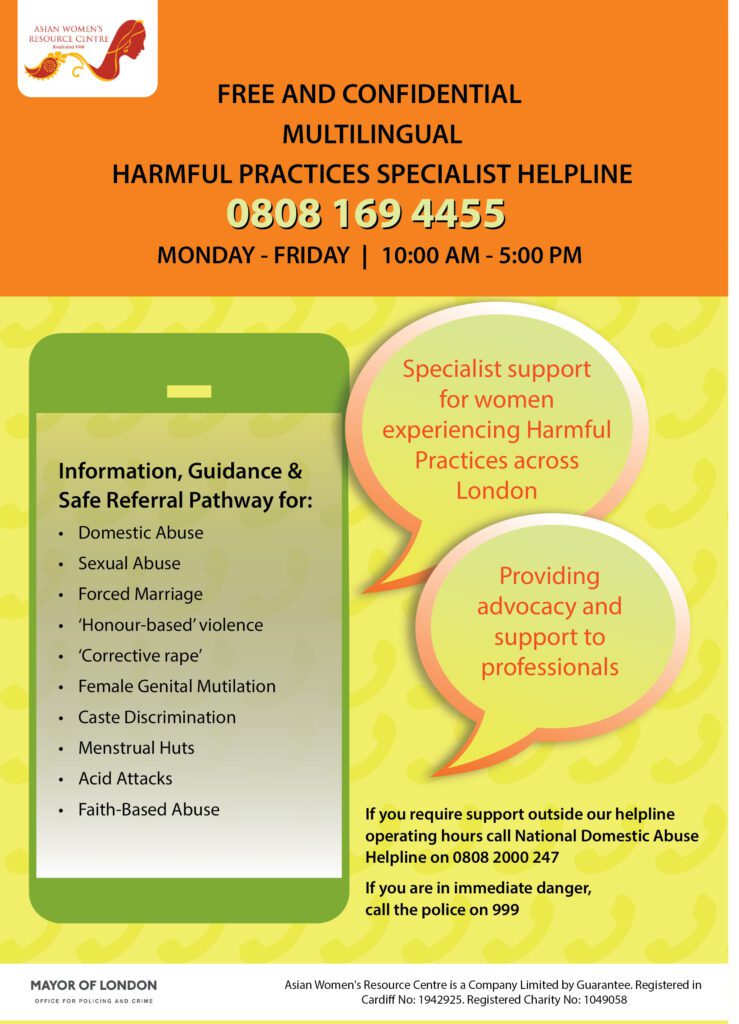
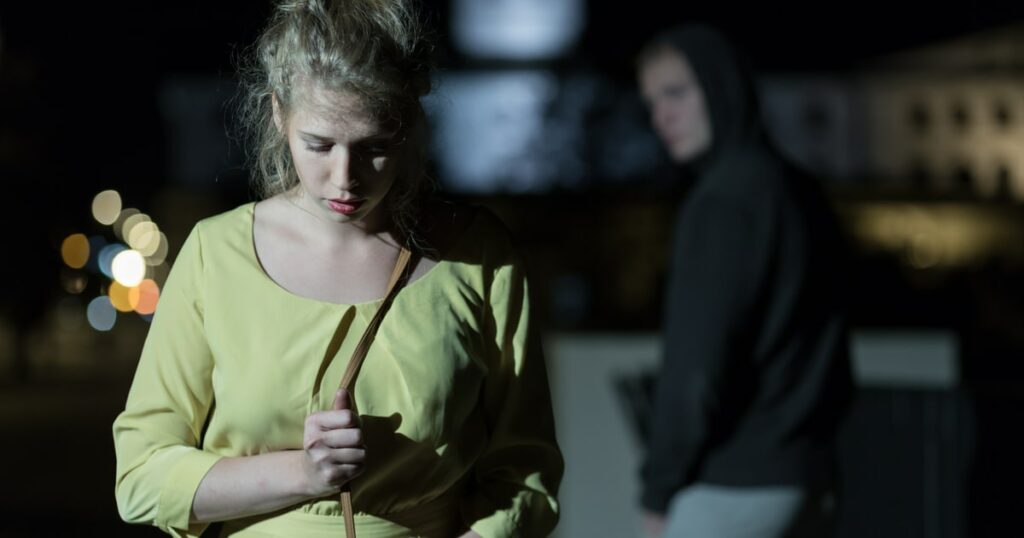
WALKING ALONE? REMEMBER THESE 10 TIPS
1) Plan Your Route
Make sure you plan your route ahead of time. If you are walking in an area you are not familiar with, this can help keep you from getting lost. You will be able to walk with confidence. If you do get lost, don’t wander aimlessly, find a gas station, supermarket, or fast-food restaurant where you can ask for directions.
2) Make Sure Someone Else Knows Your Plans
Don’t go out when it is dark without telling someone, even if you are just taking the dogs out for a walk around your neighbourhood or walking home from a friend’s house nearby. It may seem paranoid, but in fact, knowing someone knows where you are can be reassuring and help you feel safe. If you fall and hurt yourself or run into trouble, and someone knows where you are, they can send help if you don’t arrive at your destination on time.
3) Always Carry Your Phone with You
Always carry your phone, but not for music or to make social calls as your walk. Your phone can be a lifeline if you see something suspicious or worse if something happens to you. Download a safety app on your phone, so you’ll be able to discreetly alert the authorities if you feel threatened or see something suspicious.
4) Avoid Suspicious People and Areas
Areas that are dark, deserted, or out-of-the-way, such as an alley or a parking lot, can be riskier than a well-lit area full of people. Stick to busy, lighted paths, to minimize the risks. Also, walk mainly in familiar places where you are known. That way, if you feel like a suspicious person is following you, you can always duck into a store you know or knock on a neighbour’s door. Avoid empty streets and pathways with thick shrubbery.
5) Keep Your Hands Free
Except for a flashlight and one of the items discussed below, keep your hands free. If you are carrying anything, put it all in one bag or backpack. This will make it easier for you to react if you notice someone following you. In a dangerous situation, carrying too many bags can keep you from moving as quickly as you can if your hands are free or if you only have one bag.
6) Carry a Non-Violent Deterrent
In addition to a flashlight, A whistle will help you alert others and call them to aid you if something is wrong. The loud noise may put off attackers, and they’ll move on to find someone else. Mace or pepper spray can give you enough time to evade a potential attacker, and in a pinch, a flashlight can be used as a weapon. Make sure you know how to use the mace or pepper spray to get its full effect.
7) Wear Reflective Clothing to Prevent Accidents
When it comes to personal safety, it’s not just about suspicious people. Areas with low visibility can be prone to accidents. Reflective clothing allows bikers and cars to see you as you walk along. A flashlight or headlight can also help drivers see you if there are dark stretches of road on your route.
8) Take a Self-Defence Class
When fighting off something as an assault, the element of surprise can work in your favour. If you regularly walk alone, take a self-defence class. You don’t have to become a black belt. In fact, it’s probably better to learn something like Krav Maga, which has been popular for self-defence. The idea is to disable your attacker enough for you to get to safety, and a class focused on self-defence will help give you those survival skills.
9) Remove Any Distractions
Keep your phone in your hand in case you need to hit the panic button on your safety app, but don’t let it distract you. When walking alone at night for exercise, music can be motivating and energizing but also distracting. You may not hear someone driving or walking up behind you. Avoid wearing headphones or talking on your phone as you walk.
10) Trust Your Gut
When walking alone at night, trust your gut. If you feel like an area or situation may be dangerous, don’t wait around to find out. Stop and scan your surroundings if you think someone is following you. If you are being followed, walk as quickly as you can to a well-lit public place. You can wait until you feel safe, or call a friend, a taxi, or an Uber to help you get safely get home at night.
Following these personal safety tips will help keep you stay safe when walking alone. Always be aware of where you are and alert to suspicious activity.
Opening hours
Monday - Friday – 9.30am – 5pm
Saturday and Sunday – Closed
